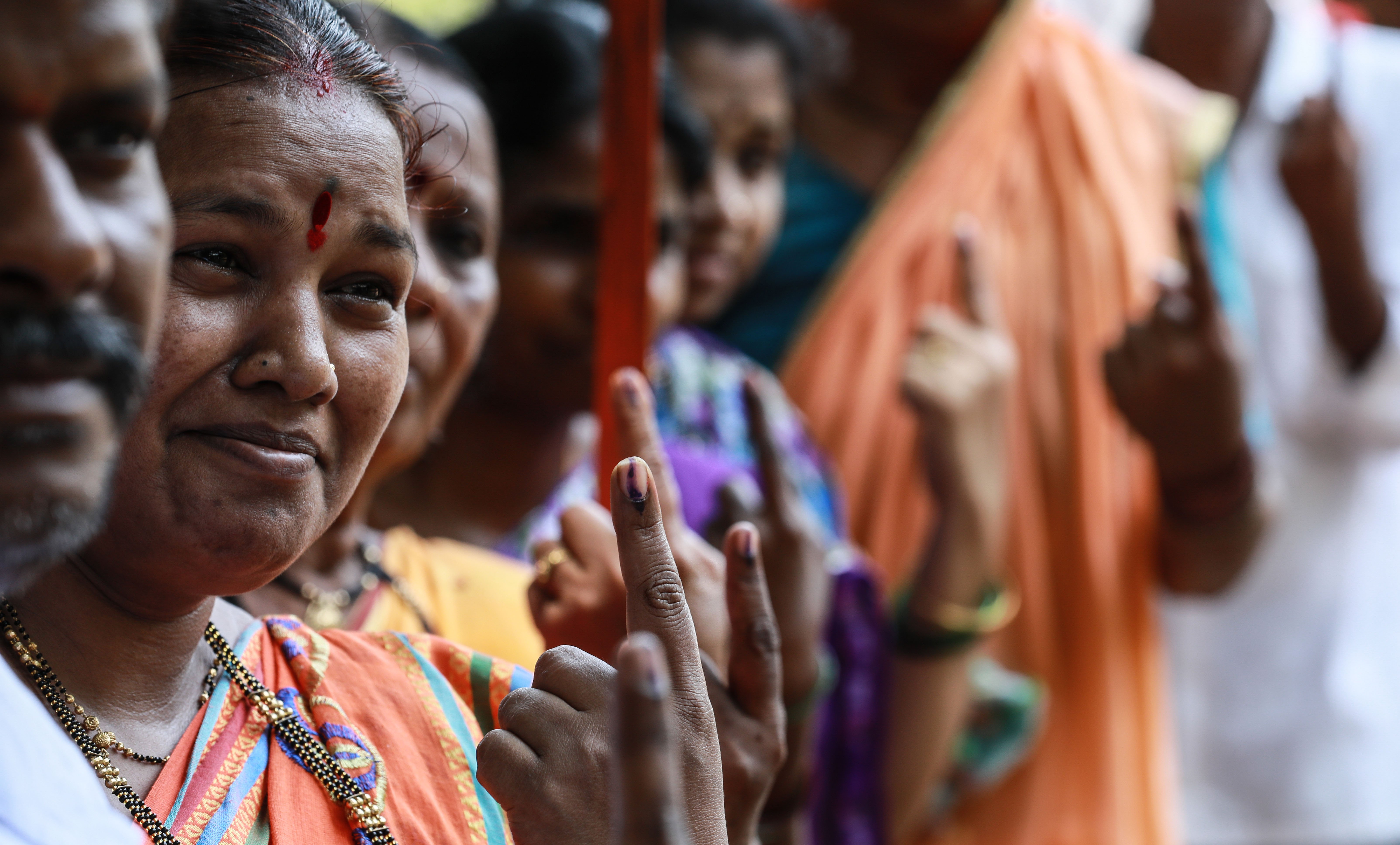Social Media threats loom large in Indian general elections
- By Niranjan Sahoo
 0 Comment(s)
0 Comment(s) Print
Print E-mail China.org.cn, May 2, 2019
E-mail China.org.cn, May 2, 2019

The traditional media – both print and electronic – have long had an outsize influence on the election outcomes in India. Political parties and aspiring candidates for public offices used to allocate a significant portion of their resources to this supposedly influential platform. That no longer exists. Starting with the 2014 general elections, won hands-down by Prime Minister Narendra Modi's Bharatiya Janata Party (BJP), India's election scene has witnessed the astonishing penetration of new and social media, and with serious implications. And if 2014 saw the beginning of social media setting the election debates and issues, then the ongoing 2019 election will see the trend go even further.
How widespread is social media presence in this large, agricultural country? Notwithstanding its relatively small ratio of urban dwellers (31% according to 2011 Census), the Indian population on the whole is going through tremendous transformation in terms of access to and use of social media technology. Currently there are nearly 600 million internet users across the country, with one-fourth of them being active users. This means, for instance, that India has some 300 million Facebook users and as many as 35 million active Twitter users. The popular chat platform WhatsApp has amassed more than 230 million users, and is expanding in leaps and bounds. Service providers such as Reliance Jio, which offer cheap data services at a throwaway price, have helped further the reach of internet to the common man. And notably, the upcoming 2019 Lok Sabha election will include around 15 million first-time voters, most of whom can safely be assumed to be social media users.
The "social media effect" on elections
Sensing the potential of expanding social media, political parties and electoral candidates have set up dedicated social media teams, called IT cells, to mobilize support for their candidates, which is both cheaper and faster than using traditional media. And while nearly every major party has created its own IT cell to set political narratives and reach out to supporters, it is the ruling BJP which currently dominates social media game. Even their top rival, the Congress Party, lags far behind in this aspect.
Following on the success of its inroads into social media in the 2014 general elections, the BJP has established a social media cell with 400 dedicated analysts to initiate a grassroots push. By last count, the ruling party has appointed more than 900,000 volunteers called "cell phone pramukh" who steer WhatsApp groups to disseminate information about the party's achievements and PM Modi's leadership. The Congress is catching up with its own "digital sathi" (meaning friends) coordinating digital campaigns. To stay in the electoral game, parties are allotting as much as one-fourth of their resources to social media campaigns.
Notwithstanding the positive features of social media – information diffusion, awareness raising and building direct links between voters to discuss candidates and issues leading up to the elections – the negative effects of such emergent technology greatly outweigh the positives. There are growing instances of fake news, false propaganda, hate campaigns and communally sensitive messages fueling animosity and a deep divide among social and political groups. Social media has become tool for political parties to actively spread misinformation and influential content to induce voters on a scale previously unseen.
The spread of fake news is one of the chief issues, for instance, messages containing information such as a Pakistani flag being waved at Rahul Gandhi's rally or Sonia Gandhi being the country's fourth-richest woman are still being spread and are heavily influencing the minds of the voters. Most of the blame has been cast upon platforms such as WhatsApp.
A struggling Election Commission
While the Union Government has acted periodically to stop the spread of fake news and hate messages, it has hardly yielded positive results. The major body stepping up to rein in the negative social media effects is the Election Commission, which has sought the cooperation of major companies such as Facebook, Google and Twitter to check content and regulate the misuse of their platform by political parties. But given the dynamic nature of technology, the commission is finding the going tough. It has issued a detailed guideline for social media companies to follow over the course of the elections, yet ground reports suggest that these guidelines have limited effect. For instance, despite WhatsApp restricting its forwarding to five users at once, political parties have simply splintered larger groups into thousands of subgroups using smartphones to bypass such restriction.
Similarly, Facebook is using algorithms and has appointed hundreds of volunteers to check for fake news and hate messages. However, the results so far are not very encouraging. Parties and candidates have an uncanny ability to beat the social media giants at their game.
In short, the social platforms now pose the single biggest challenge to the integrity of the Indian elections. We can only hope there will be a solution to this menace soon.
Niranjan Sahoo is a columnist with China.org.cn. For more information please visit:
http://www.china.org.cn/opinion/NiranjanSahoo.htm
Opinion articles reflect the views of their authors only, not necessarily those of China.org.cn.
If you would like to contribute, please contact us at opinion@china.org.cn.






Go to Forum >>0 Comment(s)